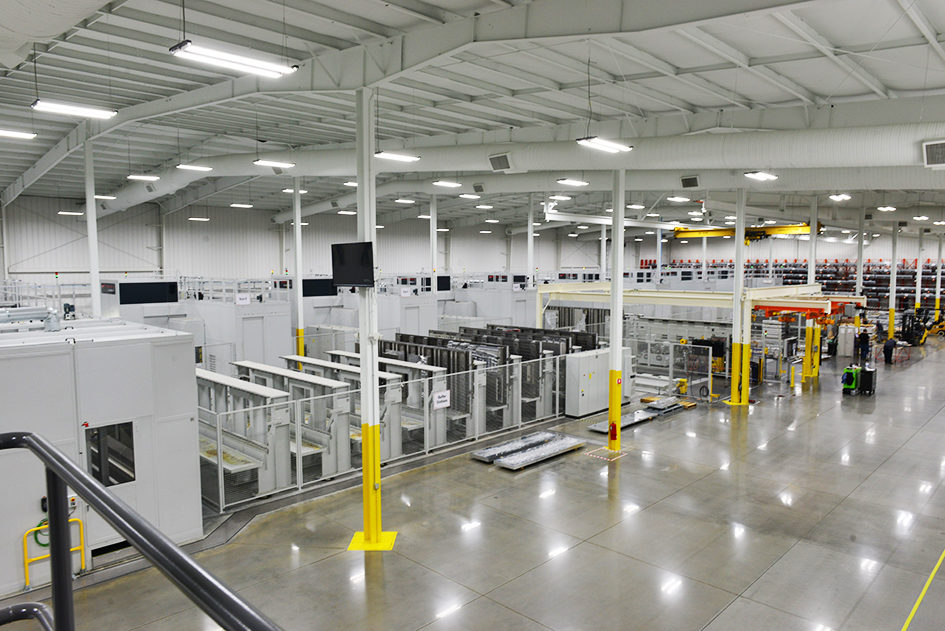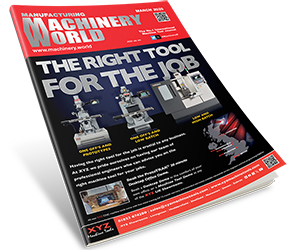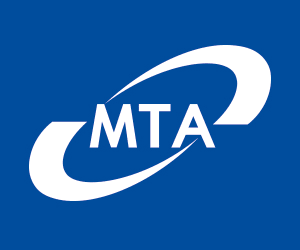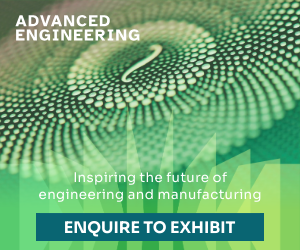Today, more than half a century after singer Gene Pitney put America’s southern central state of Oklahoma on the world map with his hit song ’24 hours from Tulsa’, another phenomenon is bringing global recognition to the area – Orizon Aerostructures.
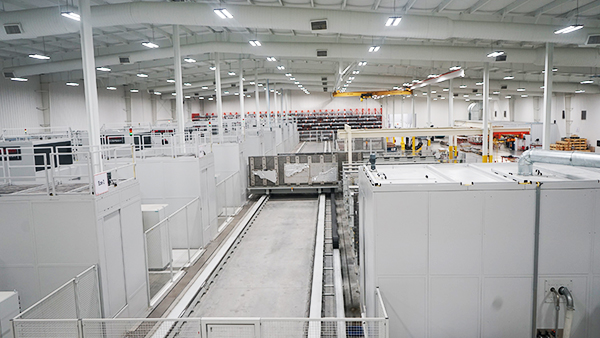
The FMS – the largest integrated system of its kind in the western hemisphere, is enabling the company to achieve at least a 30 per cent reduction in machining times across all parts, compared to former methods
Orizon Aerostructures is a manufacturing and technology company that is building something unique in the Midwest with six locations and 763 employees dedicated to aerospace manufacturing and complex sub-assemblies – almost 780,000 ft2 of production area at sites in Kansas and Missouri as well as Oklahoma – including four machining locations which between them utilise 100 CNC machines (50 of which are five-axis or more). But it is the company’s newest plant in Grove, a little under a 90-minute drive from Tulsa, where a new tune in manufacturing excellence is being played.
In a purpose-built factory that is part of a total investment of $50 million plus in ten Ecospeed F2060 machines, Orizon has installed a flexible manufacturing system (FMS) based around nine Starrag five-axis Ecospeed machining centres. And it is setting new standards in the machining (predominantly milling) of aerostructures.
The FMS – the largest integrated system of its type in the western hemisphere – is enabling the company to achieve:
- At least a 30 per cent reduction in machining times across all the parts, compared to former methods.
- A massive improvement in surface finish with much less deburring and polishing requirements.
- An amazing revenue to capex ratio and 2-3 x revenue per person over traditional methods of machining.
“That’s no surprise,” says Starrag North America’s Managing Director Udo Herbes, “when it is realised that the Ecospeed is able to convert a 550 kg aluminium billet into a 24 kg complex structural part in less than four hours when the machine is running at a maximum cutting volume of up to 10,000 cm3/min.”
Incorporating the nine high-speed (50 m/min traverse rates) Ecospeeds that are fed by an automated rail-guided, 18-station pallet system and completed by an integrated washing/drying cell, the FMS is manned by just five people on each of the two daily shifts for 24/7 operation to enable Orizon to achieve the extraordinary machining benefits on the range of aerostructures – primarily wing spars, skins and bulk heads for the leading original equipment manufacturers in aerospace and defence.
Orizon’s forward-thinking machining philosophy is certainly paying dividends, and the company’s attitude towards its investment is clear, as CEO Charlie Newell outlines: “In October 2016, we dreamed of building something unique and building it in just 12 months; a new factory to house a new FMS that would produce machining efficiencies to surpass anything we’ve ever encountered,” he says. “Working from the start with Starrag, together we have created an unbelievably formidable and highly successful partnership for world-class machining of aerostructure parts. It was clear, even before the first machine sale, that Starrag was willing to listen and to share and support our vision. Starrag has done this by, for example, offering excellent levels of knowledge transfer and assisting us to develop the appropriate processes around our business systems.”
He adds: “These include standardising machining operations (using standard tooling) across all the parts and, for instance, the use of online diagnostic tools that enable Orizon (and Starrag Technology at Mönchengladbach) to ‘interrogate’ the system or individual machines via smart phones, iPads or desktop computers at any time of the day or night.”
Online diagnostics are just one aspect – and benefit – of Starrag’s Integrated Production System (IPS), a modular digital platform that aligns with Starrag’s ‘Engineering precisely what you value’ philosophy by offering users a suite of functionality to meet individual tasks, including:
- Cloud-based solutions help users analyse and optimise processes more specifically to further increase productivity;
- Machine Production System that monitors production in real time and protects the machine against incorrect operation/collisions;
- Process Quality Control where a chatter monitor warns of dangerous vibrations when machining; and
- An integrated Machine Qualification System that will inform about machine condition and, where necessary, will display the corresponding maintenance instruction(s).
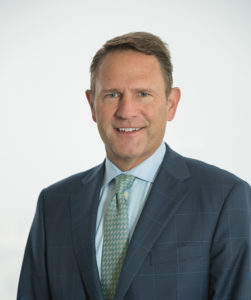
Henry Newell, Orizon
“Orizon chose Starrag Ecospeed F2060s, each with a Sprint Z3 parallel kinematic machining head and an angular milling head,” says Orizon President Henry Newell, because “the machine produced everything Starrag said it would in terms of metal removal (up to 650,000 cubic inches of chips each hour by each machine), reliable uptime (97 per cent) and excellent surface finishes (courtesy superb jerk speeds). “It was also clear that Starrag was a company we could truly trust and one with common values in attaining world-class machining results,” he adds. “Even one chip not removed timely in one pocket could cause a $20,000 part to be scrapped – and nobody can afford that!”
It was not, however, a case of Orizon simply placing an order for the initial six machines for the FMS (with the plan to add another three machines – and perhaps more in the future). Orizon first installed a stand-alone Ecospeed with the Z3 head to thoroughly test the machine’s effectiveness and efficiency on production parts to achieve what Josh Fink, Vice President of Machining, says “will provide customers with faster, better and more affordable production”.
Orizon’s original Ecospeed F2060 sits alone in its own area, enabling the 86,000 ft2 factory floor to host the FMS which began development as a six-machine FMS. The first F2060 for the FMS was installed in January 2017, followed two months later by the pallet system, and the system was in production by October 2017. A year later, three additional Ecospeeds were added – “and importantly”, says Josh, “these latter three machines did not add any labour overhead to the system; just revenue”.
Starrag’s Ecospeed F2060 has travels in X, Y and Z of 6,300 mm by 2,500 mm by 670 mm (spindle in horizontal position) and traverse rates of 50 m/min in each axis. In addition, the +/- 45deg A/B axis is complemented by a 30,000 revs/min, 120 kW spindle that offers a torque of 83 Nm and can run non-stop at 30,000 revs/min in S1 mode. The specification is additionally enhanced on a machine with high dynamics in acceleration of up to 1 g in all five axes and jerk up to 200 m/s³.
The load/unload station sees the parts (up to 12 different parts per pallet – though workpiece size, especially heights, are ideally standardised on each 2 m by 6 m pallet, each one capable of accommodating loads of 5,000 kgs) loaded manually and clamped by a mixture of vacuum and mechanical clamps, with the pallet in the horizontal position. Once loaded, the pallet is tilted 90deg and is moved into the 270-feet long FMS, with the sophisticated cell controller ‘deciding’ which machine will process which pallet.
With common tooling held by each of the Ecospeed’s 129-station toolchangers, meaning that any F2060 can machine any part in any order, the cell control system provides the ultimate in flexible manufacturing. Orizon worked closely with Starrag to standardise the tooling and machining speeds and feeds, as well as programming routines, to enable this high-level flexibility of production.
After machining, the pallet moves to the wash/dry station where high-pressure wash nozzles direct angled jets to reach every corner of a part before an air blast is used for drying. That said, by using minimum quantity lubrication (MQL), workpieces enter the wash station bearing a relatively low amount of swarf/cutting fluid. Upon unloading, the pallet returns to the horizontal and each part is removed from the system for deburring then onto a co-ordinate measuring machine for 100 per cent inspection.
Each of Orizon’s Ecospeeds features a Sprint Z3 parallel kinematic machining head, which boosts the machine’s ability for highly-dynamic, simultaneous five-axis/five-sided milling and drilling. The head uses three parallel linear axes drives mounted radially equi-spaced in the headstock. The spindle platform is connected to each drive via rigid levers with pivots at each end and a ball joint at the other.
When all three axes move simultaneously, the spindle is moved in a straight line in Z; synchronised motion of the three Z-axes allows the spindle to follow any path within a spherical cone of +/- 45 deg at a maximum of 80 deg/sec. If the three axes move differentially, the spindle platform will be tilted in the A/B kinematic.
Each machine has an integral C axis to allow the use of automatic interchangeable angular milling heads which operate at every spatial angle between -135 deg to +135 deg. These heads effectively make each machine a six-axis unit, for accessing and machining otherwise difficult-to-reach areas.
Standard HSK A63/80 taper tooling is used, as well as ‘mono’ tools up to 50 mm diameter. All tools feature RFID chips for effective tool management.
One measure of the collaboration between Orizon and Starrag is the fact that the latest three Ecospeeds installed feature design ‘tweaks’ to meet Orizon’s needs – modifications to the pedestrian door, improved lighting for in-machine cameras and an improved access door for maintenance routines, for instance.
Orizon operators undertake basic maintenance routines which are complemented by Starrag’s Service Plus preventative maintenance scheme – where an annual fee covers every eventuality and guarantees service response times, inspection and repair.
Having achieved such gains in machining efficiency, Orizon is not resting on its laurels, however, as Josh Fink points out: “System performance is continually scrutinised, with conference calls every week between us and Starrag to discuss machine availability levels (currently 97 per cent) and spindle utilisation (87 per cent targeted). Yes, it’s all very well having such targets, but the key is being able to reach them. It’s simply a case of continual improvement.”
Service comes first for Starrag North America
With more than 700 Starrag machines in operation across the United States, Starrag North America’s Managing Director, Udo Herbes, is very clear on where the company’s ambitions lie – now and in the immediate future.
“While the aerospace market is really driving Starrag’s US market, followed by the industrial and heavy automotive (for example, mining and off-road vehicles) sectors, it is clear that we have to continue to grow our team, certainly of service technicians, to meet customer demands for exceedingly high machine uptimes. We have to ensure that every customer is always happy.”
He adds; “With a central spares location in Dallas, with parts on overnight delivery if required, and with service technicians at various locations throughout the States, we will continue to guarantee to have a machine back up and running within 48 hours of any problem.”


